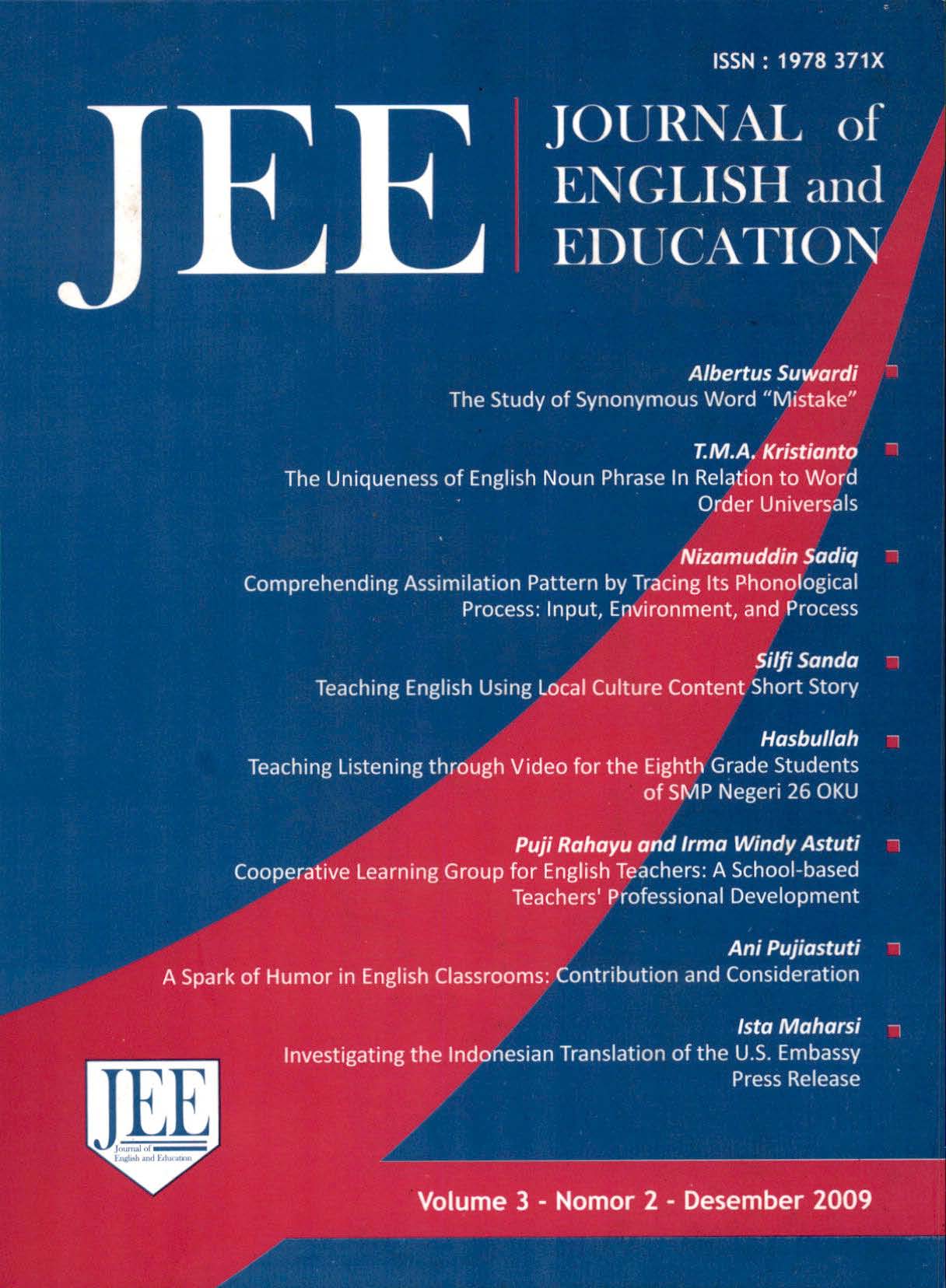Main Article Content
Abstract
In English language, there are integrated skills to be mastered such as speaking, listening, reading and writing. Listening is the language modality that is used most frequently; however, language learners do not recognize the level of effort that goes into developing listening ability. Therefore, it is essential for language teachers to help students become effective listeners. One of efforts can be done is teaching listening through video.
The writer used quasi-experimental method with two groups' pre-test, posttest design. The independent variable of this research is the use of video and the dependent variable is the students' listening ability. In this research, the population is all the eighth grade students of SMP Negeri 26 OKU, in academicyearsof2009-2010. AH of the populations are taken as samples of investigation. The data of this study collected by means of written test.
The results show that the students from the experimental group used video has better achievement in learning asking and giving direction than the students from control group. There was a significant difference in teaching listening through video and not using video. Therefore, it can be concluded that teaching listening through video was more effective than CD to the eighth students of SMP Negeri 26 OKU.
Keywords
Article Details
Copyright (c) 2016 JEE, Journal of English and Education

This work is licensed under a Creative Commons Attribution-ShareAlike 4.0 International License.
Authors who publish with this journal agree to the following terms:
- Authors retain copyright and grant the journal right of first publication with the work simultaneously licensed under a Creative Commons Attribution-ShareAlike 4.0 International License that allows others to share the work with an acknowledgment of the work's authorship and initial publication in this journal.
- Authors are able to enter into separate, additional contractual arrangements for the non-exclusive distribution of the journal's published version of the work (e.g., post it to an institutional repository or publish it in a book), with an acknowledgment of its initial publication in this journal.
- Authors are permitted and encouraged to post their work online (e.g., in institutional repositories or on their website) prior to and during the submission process, as it can lead to productive exchanges, as well as earlier and greater citation of published work (See The Effect of Open Access).

